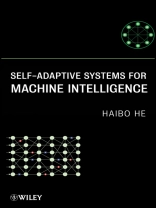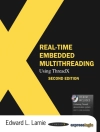This book will advance the understanding and application of
self-adaptive intelligent systems; therefore it will potentially
benefit the long-term goal of replicating certain levels of
brain-like intelligence in complex and networked engineering
systems. It will provide new approaches for adaptive systems within
uncertain environments. This will provide an opportunity to
evaluate the strengths and weaknesses of the current
state-of-the-art of knowledge, give rise to new research
directions, and educate future professionals in this domain.
Self-adaptive intelligent systems have wide applications from
military security systems to civilian daily life. In this book,
different application problems, including pattern recognition,
classification, image recovery, and sequence learning, will be
presented to show the capability of the proposed systems in
learning, memory, and prediction. Therefore, this book will also
provide potential new solutions to many real-world
applications.
Jadual kandungan
Preface.
Acknowledgments.
Chapter 1. Introduction.
1.1 The Machine Intelligence Research.
1.2 The Two-Fold Objectives: Data-Driven and
Biologically-Inspired Approaches.
1.3 How to Read this Book.
1.4 Summary and Further Reading.
References.
Chapter 2. Incremental Learning.
2.1 Introduction.
2.2 Problem Foundation.
2.3 An Adaptive Incremental Learning Framework.
2.4 Design of the Mapping Function.
2.5 Case Study.
2.6 Summary.
Chapter 3. Imbalanced Learning.
3.1 Introduction.
3.2 Nature of the Imbalanced Learning.
3.3 Solutions for Imbalanced Learning.
3.4 Assessment Metrics for Imbalanced Learning.
3.5 Opportunities and Challenges.
3.6 Case Study.
3.7 Summary.
Chapter 4. Ensemble Learning.
4.1 Introduction.
4.2 Hypothesis Diversity.
4.3 Developing Multiple Hypotheses.
4.4 Integrating Multiple Hypotheses.
4.5 Case Study.
4.6 Summary.
Chapter 5. Adaptive Dynamic Programming for Machine
Intelligence.
5.1 Introduction.
5.2 Fundamental Objectives: Optimization and Prediction.
5.3 ADP for Machine Intelligence.
5.4 Case Study.
5.5 Summary.
Chapter 6. Associative Learning.
6.1 Introduction.
6.2 Associative Learning Mechanism.
6.3 Associative Learning in Hierarchical Neural Networks.
6.4 Case Study.
6.5 Summary.
Chapter 7. Sequence Learning.
7.1 Introduction.
7.2 Foundations for Sequence Learning.
7.3 Sequence Learning in Hierarchical Neural Structure.
7.4 Level 0: A Modified Hebbian Learning Architecture.
7.5 Level 1 to Level N: Sequence Storage, Prediction and
Retrieval.
7.6 Memory Requirement.
7.7 Learning and Anticipation of Multiple Sequences.
7.8 Case Study.
7.9 Summary.
Chapter 8. Hardware Design for Machine Intelligence.
8.1 A Final Comment.
References.
Mengenai Pengarang
Haibo He, Ph D, is Assistant Professor in the Department of
Electrical, Computer, and Biomedical Engineering at the University
of Rhode Island. His primary research interest is computational
intelligence and self-adaptive systems, including optimization and
prediction, biologically inspired machine intelligence, machine
learning and data mining, hardware design (VLSI/FPGA) for machine
intelligence, as well as various application fields such as smart
grid, sensor networks, and cognitive radio networks.












